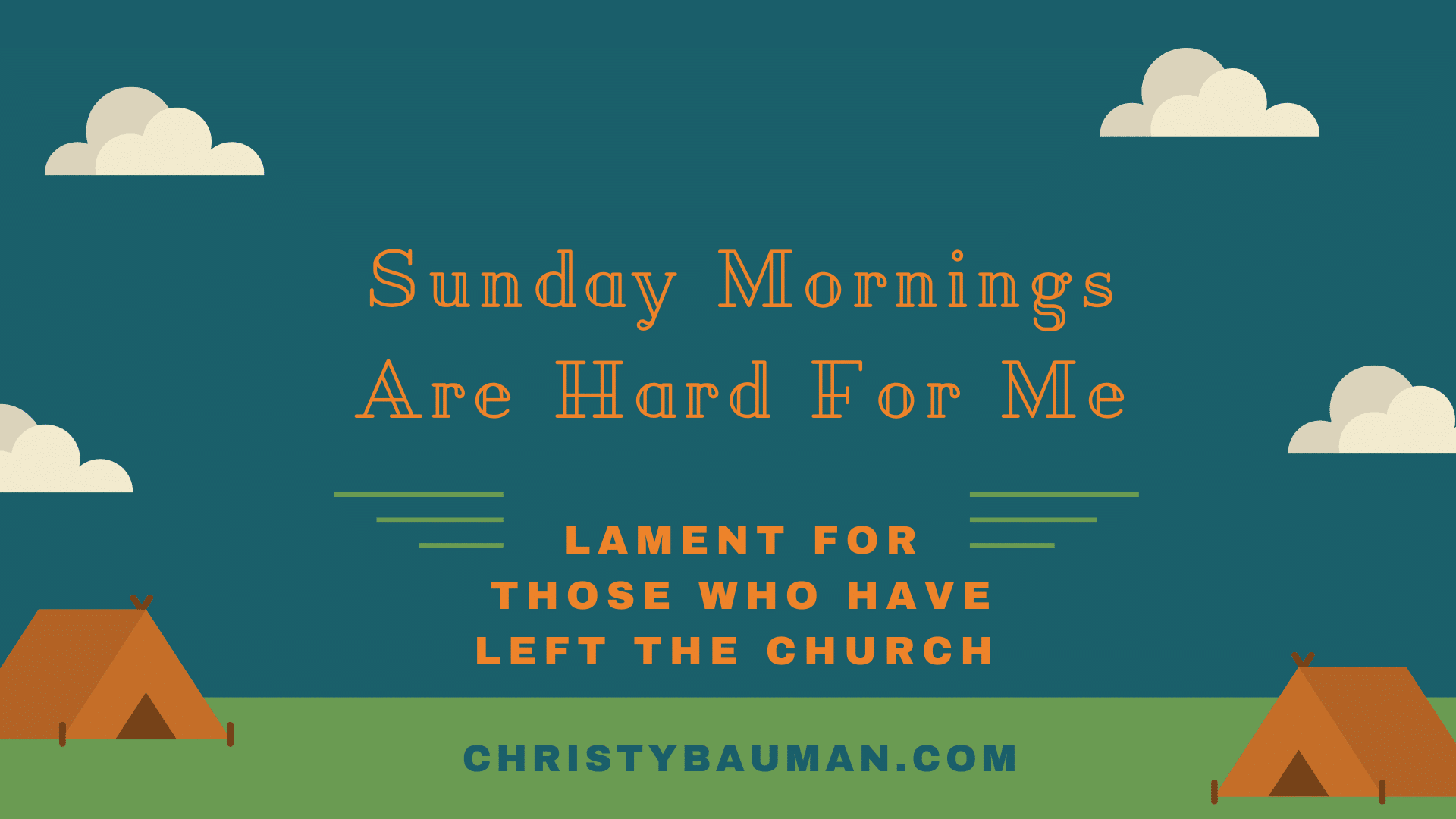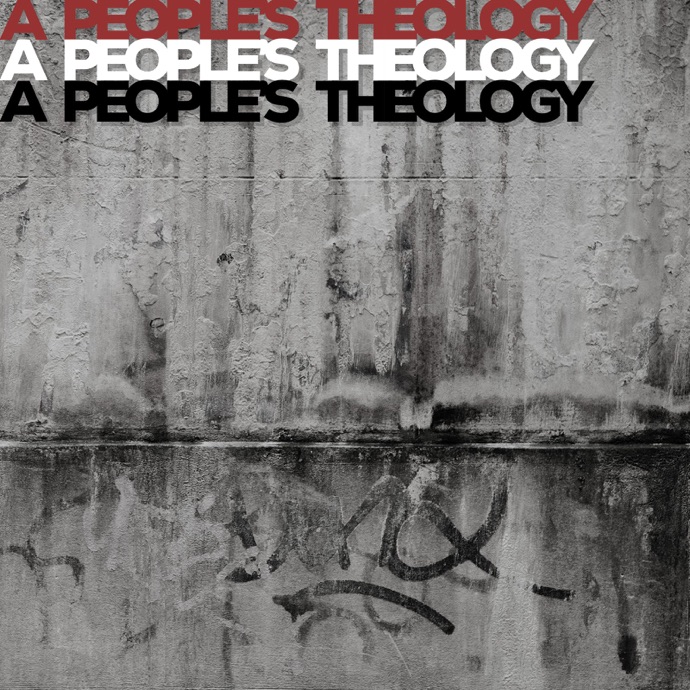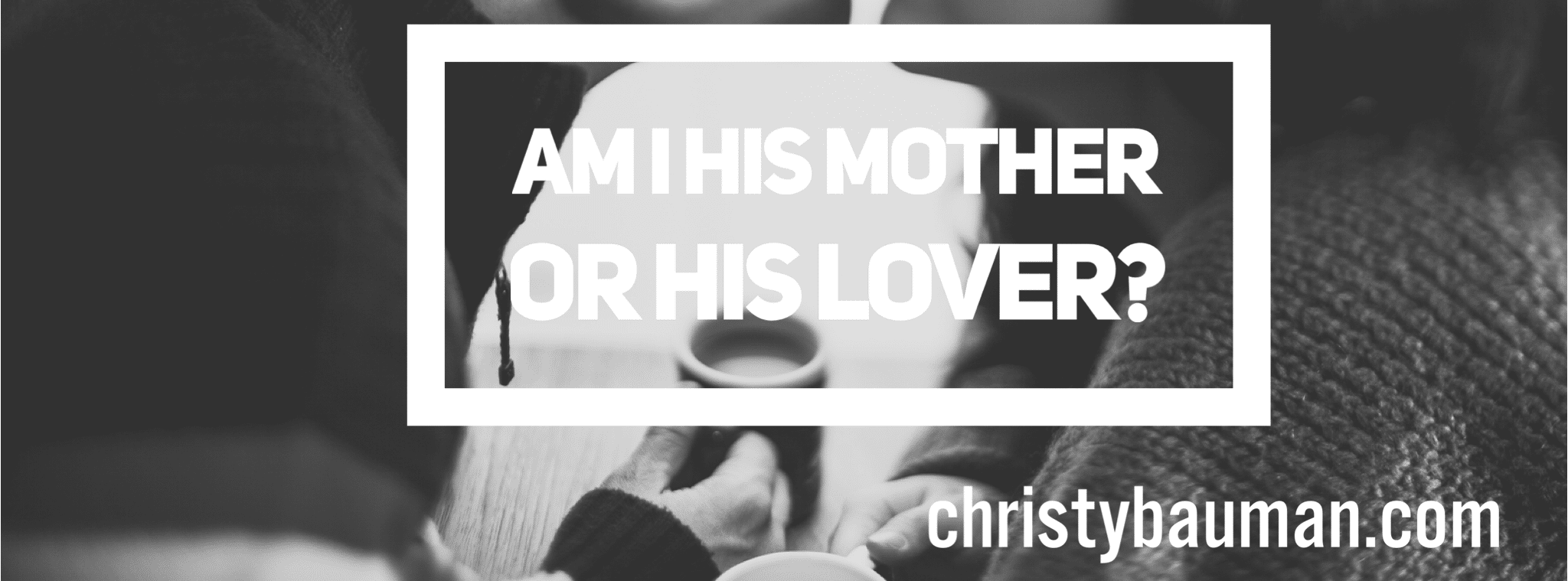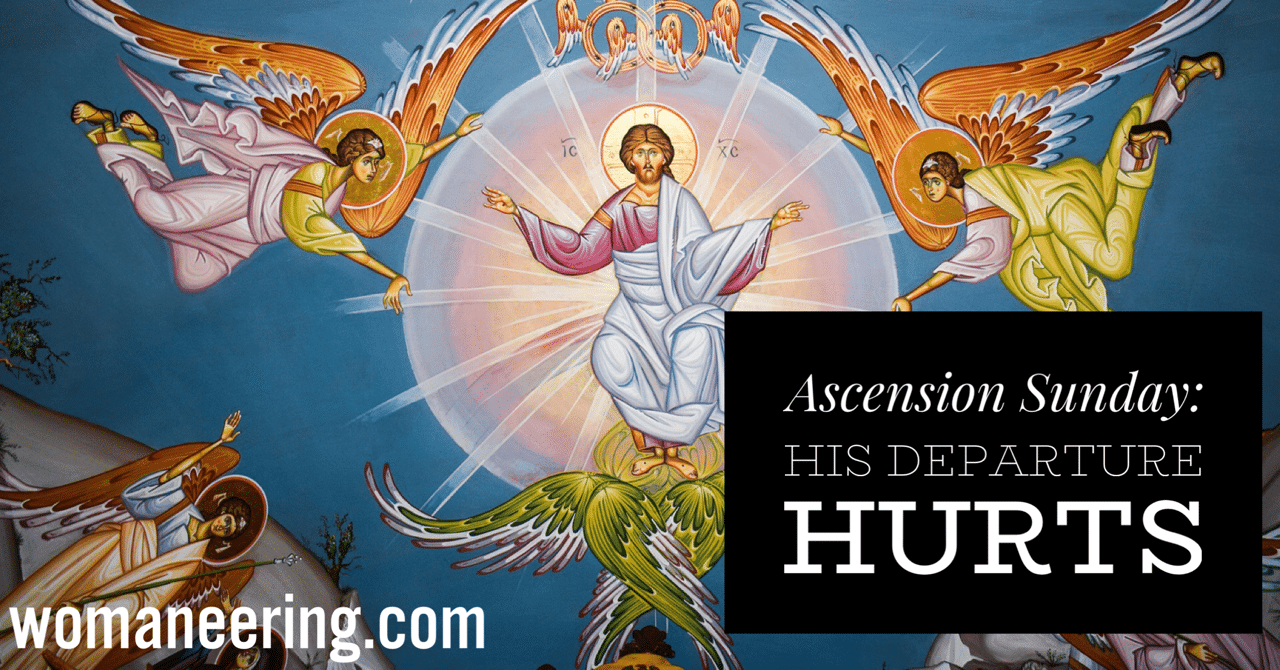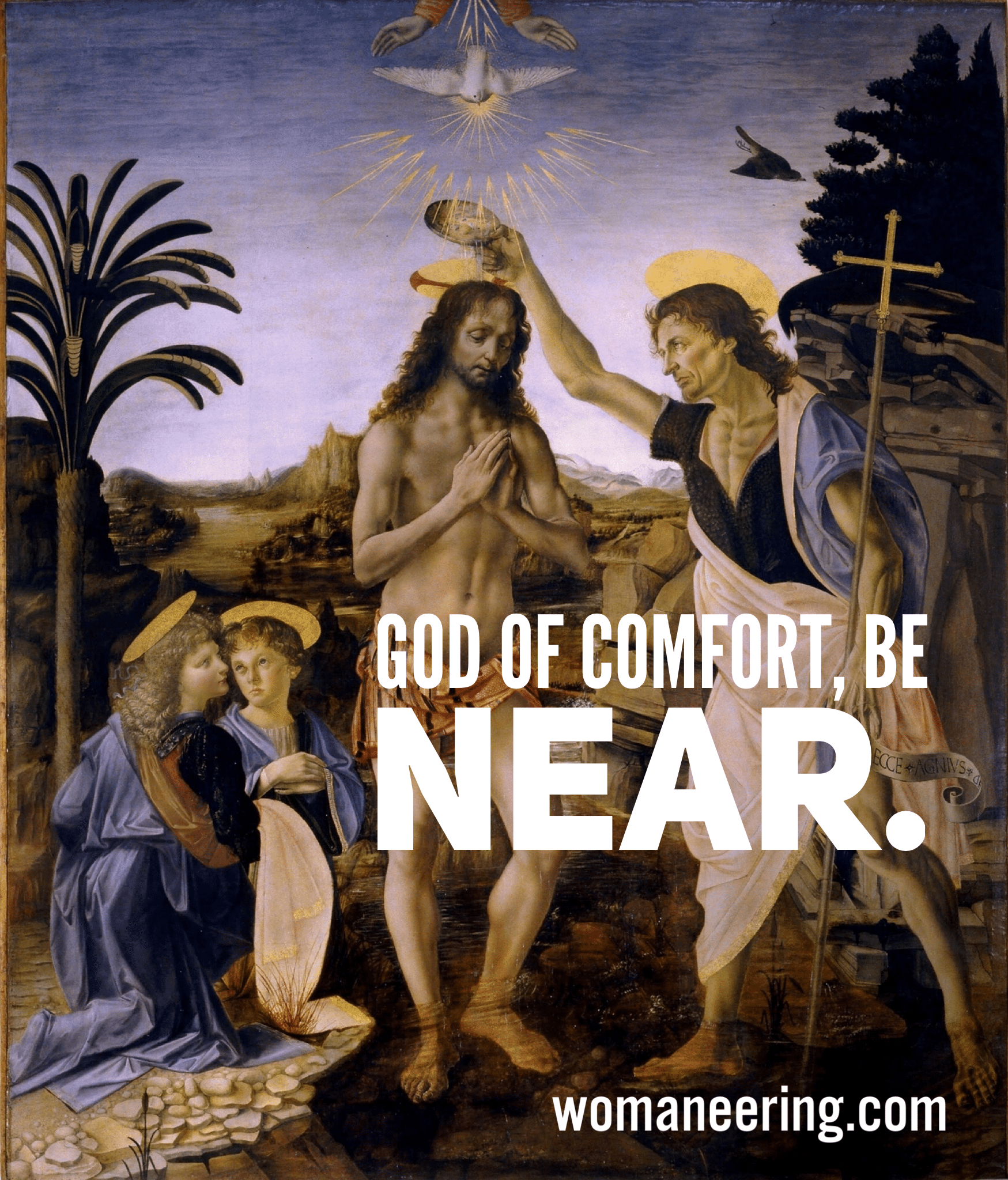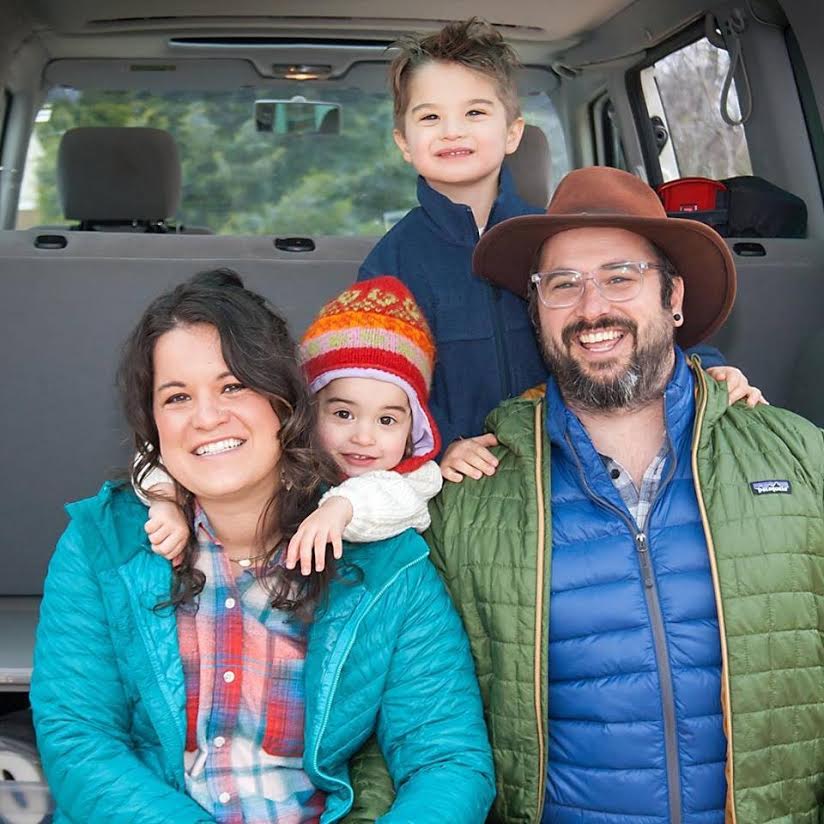Sunday Mornings Are Hard For Me: Lament for Those Who Have Left The Church
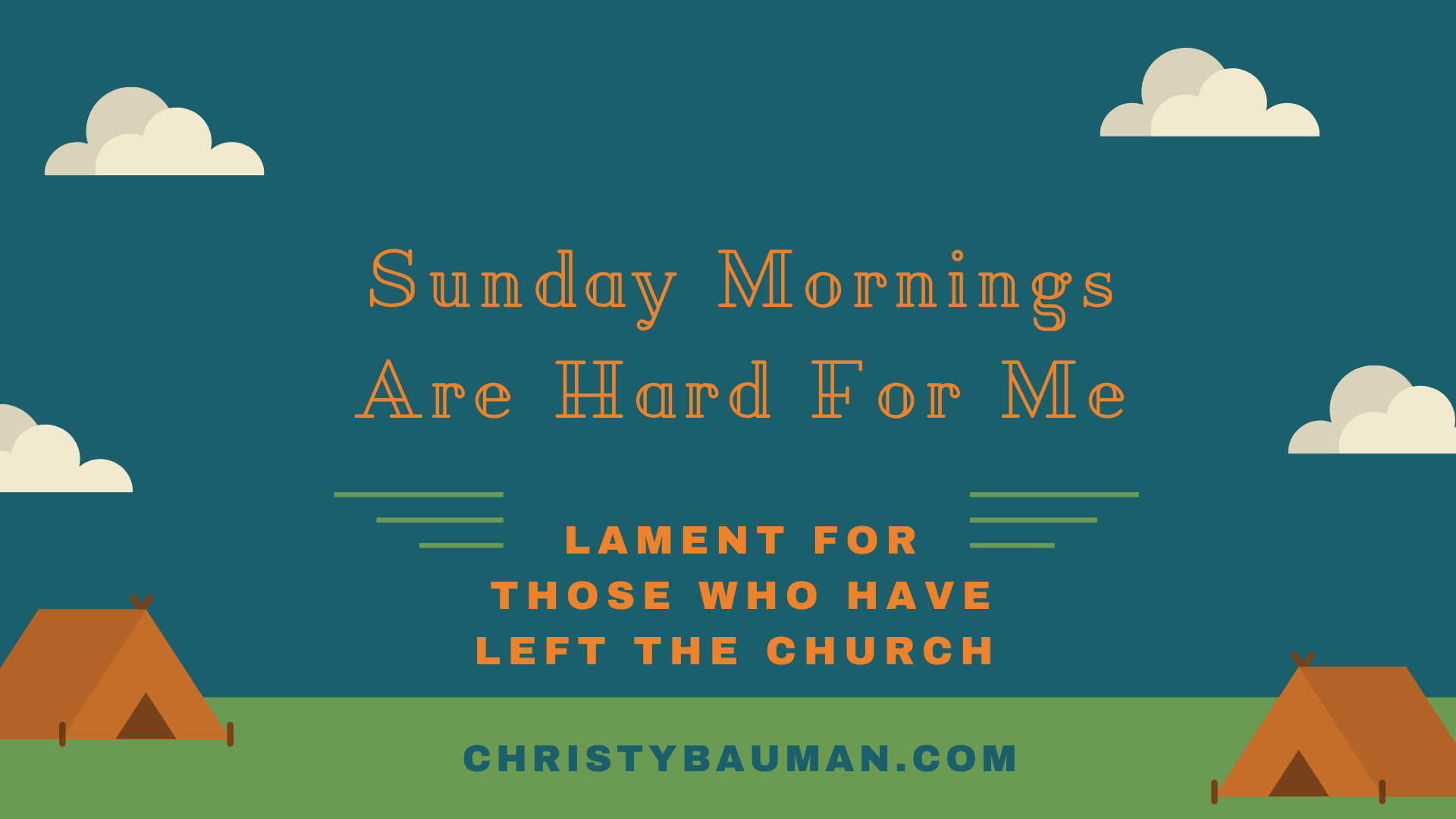
“It’s you! We grew up together! You! My best friend! Those long hours of leisure as we walked arm in arm, God a third party to our conversation. My companion, my close friend; we once enjoyed sweet fellowship as we worshipped together in the house of God.” Ps.55:14
This obscure verse of lament comes back to me in the strangest moments. I don’t relate to the other verses in this chapter, but this 14th verse strikes my knowing place.
As this decade ended, so did the communal mission my friends and I started 12 years ago when we planted a church. The church still stands, the ministry continues to thrive but since the beginning, we have lost over 25 founding members. I led worship this morning and broke down because in the crowd so many new faces stared back at me. It isn’t a negative thing to have a lot of new people, but it is the absence of old faces that sucker punched me.
“....we once enjoyed sweet fellowship as we worshipped together in the house of God.”
I feel accompanied as if the writer has experienced the same loneliness.
We wounded warriors who still remain in the church bear the grief each Sunday of what was or could have been. Anyone who has known the loss of a pastor stepping down, a church community dividing or falling apart, a best friend moving away, understands the deep sting. Yet why such an invasive burning? The loss, like all loss, requires grief; but what happens when you walk back into a house of God?
When we walk into a church building, it all comes flooding back. The feelings of comfort, loss, betrayal, goodness, longing, gossip, back-stabbing, hope, and loneliness barrage our mind depending on our experience at church. The house of God is a place where markings are made - baptisms, weddings, funerals, bar mitzvahs, rights of passages we experience with our community while God observes and blesses.
My Sunday mornings are heavy these days when I walk into my church building, I feel the heaviness of the spirit of homelessness due to our church’s ministry but even more, piercing to breakthrough, is the heaviness of those who no longer attend our church.
I miss my friends, and although I can still see them occasionally, I miss their spirits joining with mine in worship, in communion, with God a third party to our conversation. I miss the tender space filled with their hearts and mine. I long for the unified mission to bring peace on earth, to be LOVE, and to hold each other through deaths as we wade through this life.
Honestly, I don’t blame the people who needed to leave the church in order to save their own faith. The term Christian and the actions of Christians have done so much more harm than I ever wanted to know about, so to bear such a title is jarring for me personally. Let’s take a political perspective, 81% of Evangelical Christians voted for Trump, and I have yet to see one act of Christianity be done by our president. If you were to ask me if I align with the “Christian” choice, I would adamantly disagree. So, there isn’t a judgment on those who can not congregate in a church building because they have been misrepresented, abused, harmed, silenced or betrayed by institutions under the name of Christ. I can offer to understand these stories but how lonely it is to gather together without the ones I had once worked together with for the kingdom to come to this earth. I weep for what has been lost by their leaving, and what could have been. I bless my grief and longing for “those long hours of leisure as we walked arm in arm, God a third party to our conversation”.
To all those who have had to leave the church, I miss you dearly, it was never meant to end this way. I am grieved by the loss. Selah.
Sex as Prayer
Amen, and let it be.
This is often how I end my prayers. And sometimes, after the work of connecting with my husband and engaging in sex, how I end my orgasm. Amen, and let it be.
Honestly, I would give up sex in a millisecond if it could heal and stop all the sexual harm this world has encountered. As a trauma and abuse counselor, my job is to dissect stories of sexual harm and abuse. I spend my hours at work with a figurative scalpel and suture kit as I extract stories of sexual hurt and objectification. Stories of sexual abuse and objectification have cost my sympathetic system years of damage. If there was a way I could give up sex to have all that harm undone, I would. Yet, God created sex knowing it would also cause so much harm. This baffles my mind and also begs me to consider what God intended sex to accomplish for good. If God made sex, I deduce that it has to have a stronger superpower than what evil has used it for. So what was God’s intention for sex? Procreation is the common answer. But procreation must be teased out, those who are for creating. The power of what we can create together with another being in sex is absolutely mind-blowing. My husband and I set an intention when we have sex. For whose sake are we engaging in this act? Sometimes we literally say, we consecrate this time of sexual connection to combat evil in this world. If our part of our glory occurs when we engage in a covenant with another, with integrity and vulnerability, and we receive pleasure - well then let the sexual creations come! Let us offer our scared and wounded bodies to the other in an act of faith that God will show up and bless each other with pleasure and a taste of heaven.
Growing up in the church, no one told me very much about how to navigate sex as a Christian woman. Truthfully, I did as I was taught and stayed a virgin until marriage, praying that would secure a healthy sexual lifetime for me and my husband. I wish it had been that easy. Why didn’t anyone explain that sex is a powerful tool in the kingdom of God? So powerful that evil has used it to harm countless amounts of people. Shouldn’t that mean God intended it for something extremely powerful?
Doctors, therapists, parents, teachers, and pastors have trouble openly talking and teaching about sex. Sex is a powerful and difficult subject to explore through the eyes of God. Most churches have little education on who is equipped to navigate the conversations of sexuality and God, other than mandating abstinence. God’s design for sex is obviously intentional and powerful, and I believe God has given us power through the holiness involved in the act of sex and pleasure. My professor and mentor for many years, Dr. Tina Schermer Sellers, is a Christian Certified Sex Therapist who trains Christian therapists on how to counsel clients around healthy sexuality. She teaches about the history and practices of the Law of Onah, laws directed mainly to men which command the man to give his wife pleasure during sexual acts, not to just think of himself. Research records these laws from the Torah, specifically outlining a sexual principle that protects women as a direct rule:
“Sexual relations should only be experienced in a time of joy. Sex for selfish personal satisfaction, without regard for the partner's pleasure, is wrong and evil. A man may never force his wife to have sex. A couple may not have sexual relations while drunk or quarreling. Sex may never be used as a weapon against a spouse, either by depriving the spouse of sex or by compelling it. It is a serious offense to use sex (or lack thereof) to punish or manipulate a spouse. Sex is the woman's right, not the man's. Although sex is the woman's right, she does not have absolute discretion to withhold it from her husband.” (Mamre, 2012, p. Kosher Sex)
These laws invite us to begin the exploration of God’s design for sex as it relates to pleasure and spirituality. It was during my first seminary class discussion that my professor mentioned that the female clitoris is the size of a pencil eraser head, but has more nerve endings than the head of the male penis. I was shocked; no one had ever told me that. She posed the question, “Why would God give women a clitoris which only has the physiological function to give pleasure?” I researched the function of the clitoris, finding it described as an extremely sensitive organ made up of erectile tissue which has thousands of nerve endings, with its central function being to produce sensations of sexual pleasure. I was stunned to confirm that the clitoris, in fact, has no function in reproduction and has 8,000 nerve endings, which is double to amount of the nerve endings on the penis. Who knew seminary could be so helpful? This information has been a stunning revelation for thousands of students and clients that I work with. We are under-educated as a Christian population about God’s design of the female body, especially concerning sexuality. How can we expect to build a healthy theology around God’s plan for sexuality if we don’t study His design of our sexual organs?
Objectification of the female body brings death. If a woman’s reproductive, life-creating body parts which are created in God’s image are objectified, it prevents her body from being engaged with the way God intended. Rob Bell describes Christian sexuality as a dance between being “angel”, a spirit without a body, or “animal”, a body that lives by basic instinct. Bell writes about how we, as believers, must live as a human, neither angel nor animal, but somewhere in between:
“Angels were here before us. Animals were here before us. When we act like angels or animals, we’re acting like beings who were created before us. We’re going backwards in creation. We’re going the wrong way…our actions, then, aren’t isolated. Nothing involving sex exists independent of and disconnected from everything around it. How we act determines the kind of world we’re creating. And with every action, we’re continuing the ongoing creation of the world. The question is, what kind of world are we creating? How we live matters because God made us human. Which means we aren’t angels. And we aren’t animals.” (Bell, R. 2007, p.63-64)
The question he asks is applicable to every person, at every juncture of life, what kind of world are we creating? In the context of our sexuality, we must ask ourselves this question. Do we see sexuality as something to fear, or have we trusted God-created sexuality as a powerful tool for creating? How do we use our sexuality for the glory of God? How do we use our bodies for creating? The secular culture leads us to believe that we are animals (i.e. over-sexualized) and often the church leads us to believe we are angels (i.e. asexual). In particular, the woman’s body through pregnancy demands us to see that sex is designed to create life. What kind of a world are you creating, one of objectification or true intimacy? Our sex life is a powerful prayer telling the story of who we believe God is and who we believe God created us to be.
What kind of world are we creating as Christians? I think the answer is displayed in our sex life.
Dr. Christy Bauman, PhD, MDFT, & LMHC is committed to helping women come into their true voice. She offers story-work consulting. She is the author and producer of her works: Theology of the Womb, Womaneering Perpetual Calendar, A Brave Lament, and the award-winning Documentary: A Brave Lament. She is a psychotherapist, supervisor, part-time professor who focuses on the female body, sexuality and theology. Christy’s work can be found at christybauman.com
Jesus and Alligator Hunting: Christianity & Rites of Passage for a Southern Louisiana Girl

L-O-S-E-R-ana. This nickname we had for where I grew up showed my true feelings as a teenager for my childhood home state. The long, sweltering hot days in the swamps of Southwest Louisiana sun were spent hiking and blazing trails with ATV 4-wheelers through unmarked woods. At the age of thirteen, it was finally my turn to use the 22-rifle and kill my first alligator. After shooting it multiple times, my brother and I took the canoe in the lake and dragged out the 5 feet, 3-inch-long, scaly beast. My rite of passage was hardly done by killing the creature, it would be truly tested as I attempted to tie the nerve-flinching creature down to our picnic table, then proceed to skin and later tan the hide of this gator. My main task, above avoiding nicks in the skinning, was to batter and fry the alligator meat to perfection for my family’s dinner that night. Many people often ask what alligator meat tastes like, and truly if battered and fried well, it tastes like a perfect balance between fried fish and fried chicken. One never wants to end up with too chewy and rubbery overcooked, fried gator bites.
This experience was one of elite rites of passage that took place over my life growing up as a Cajun girl in a town with a population of under 7,000 people. Most school holidays consisted of events such as the first day of squirrel hunting or quail hunting, and, if you were lucky, school let out early on the days we were going to a skeet shoot. There are rites of passage in everyone’s life, although they may vary based on your ethnicity, social status, religion, and other factors. Rites of passage, ceremonies, and rituals are all historical ways in which women and men have engaged with their bodies as they grow older. Rites of passage are ways of marking an important stage in one’s life or an event associated with crisis or change of status, especially birth, naming, puberty, marriage, illness, or death. Adulthood is a social construct, and sociologists emphasize that marker events are a criteria for adulthood. Celebration and rites of passage amongst the women of my family feel familiar in other areas, but very limited when it comes to sacred feminine matters, particularly puberty. My period and sex were not subjects the women in family participated in corporately. I did not think highly about the privilege of becoming a woman and the responsibility of bearing a womb. Our best attempt at building a theology around our bodies was having my momma come to help me for the two weeks after my kids were born and cook for me. Other than that, no one really ever helped me make meaning of what was happening in my developing reproductive system. No one ever tied together how my feminine body displayed the glory of God or the reflection of a Creator. I didn’t grow up spending my menstruation weeks in a tent or spa retreat somewhere in the woods with these women, but this image of a repetitious weekend with my mothers of old, cooking all day long, is the closest experience I have to what it might have looked like to be handed down a ritual, a collection of stories, recipes, and belongingness. What I learned is that at least life is hard and God never intended for us to do it alone.
On a global level, we know the most basic practice of mothers teaching their daughters to wash and brush their hair is passed down from generation to generation. These practices illustrate sisterhood, women bathing in communal bath houses such as Turkish hammam or Finnish saunas. They transcend all cultures and become rituals particular to women and evidence that our ever-bearing, female bodies were made to live amongst tribes. Historical menstrual tents consisted of multiple generations of a selected tribe. Women who were already experiencing menopause would join the menstrual tents to help the younger generations. Women who were breastfeeding would bring their nursing babes along with their daughters. All females were welcome in the week of bleeding. The time was filled with spa-like and grooming activities such as bathing, massage, hairdressing, storytelling, and dream sharing. In days of old, this ritual journey was done with your great-grandmother, grandmother, mother, aunts, sisters, and daughters. The unknowns of a woman’s body were reflected in the vast differences and similarities of the bodies in your family and your community; each body reflecting back to you that you come from one another and are connected to each other in a mysterious way. We need our tribe; our tribe reflects and reminds our bodies both who we are and that we are not alone. Even today, we need to have consistent gatherings and reflections amongst women so that we can feel less alone in our own female bodies. This historical act of sharing in a communal initiation to a girl’s menstruation has long been practiced throughout the world. Global historic rituals of girls’ first blood are overall culturally seen as negative, except for places where the ritual is done in community. For instance, in India, Hindu women tend to view menstruation, especially first menstruation or menarche, as a positive aspect of a girl's life. In South India, girls who experience their menstrual period for the first time are given presents and celebrations to mark this special occasion. Ancient Hebrew women took their girls out into the wilderness to dig a hole to bury their first blood and let replenish the earth, while young girls in Ghana sit under ceremonial umbrellas and people brings gifts and pay homage.[ii] There are even positive accounts from male religious leaders in the Ivory Coast, who describe menstruation as “the flower of a tree which needs to flower before it can bear fruit.”[iii] These other viewpoints contradict the imposed “ideology of sin, dirt, pollution” that has been given to menstruation.[2] Within the cultures which believed menstruation was a positive thing and something to be done in community, the women spoke of their time of menstruation, postpartum, nursing, and menopause in community as positive. The red tent concept a universal and important part of caring for a woman’s body through her womb’s entire life cycle. Lastly, it was a Ulithi woman of the South Pacific who explained her culture’s understanding of the red tent, where breastfeeding women join menstruating women in huts along with their children. Although it is stunning to me that this is happening present day, she explains that the tents have a “kind of a party atmosphere”.[iv]
The day I started my first period, my nanny took me to get a Coke at Sonic. There was no party, no flowers, no umbrellas or dances, and definitely no digging holes in the ground. In fact, in Southern Louisiana, my family was considered to be very progressive to be because we actually spoke about periods and sex. I came from a “good, Christian home” and went to private school, so there was no sex education for me. Luckily, one Sunday night after church my mom took my younger sister and me to Ryan’s Steakhouse Buffet and told us about sex. I will never forget how she illustrated sex with a green and red gummy bear from our dessert plate, and to this day I struggle to eat those colors. For Western Christian women, there are rituals and conversations not easily passed down, such as periods and sex, in many families even amongst the women there is silence, so we must learn about these subjects on our own, alone.
Different cultures hold different events for their communities, but these rituals teach us the importance of marking our moments of celebration and grief. Martin Prechtel’s words beckon me to continue to mark my life events through ceremonies and rituals. He says, “Rites-of-passage ceremonies are not just for young people to pass into adulthood. Life change ritual
s should accompany every stage of life and anticipate the people’s full expression of grief.” The word grief stands out to me. Do rites of passage express grief? Nikki Giovanni’s interview rushes into my mind, her words echoed this thought, “For something to live, something must die”.[ii] When I began the study of a woman’s womb and the rites of passage engaged in the process of monthly menstruation and births, I never anticipated God’s invitation to the grief one must bear for something new to become alive. This is the emotional significance of living continuously through these rites of passage our bodies ask us to engage.[iii]
Am I His Mother or His Lover?

Thoughts on False Submission
Most nights, I pick up around the house after my kids are asleep. The usual Lego pieces, dirty socks, and crayons remind me of the life that is lived in these walls, but too often, I also come across two or three pairs of my husband’s shoes, clothes, and gym bags in some random rooms of the house. Upon picking them up, I sigh. I feel defeated and worried that he might never learn to pick up after himself. I internally blame my husband for his laziness or his own mother for never teaching him otherwise. I find my mind disappointed at his lack of discipline and my heart sad at how unseen I feel. I don’t feel tenderness or sweet reflection as I carry his shoes to our closet.
Wives weren’t meant to nag, they were meant to be lovers. Lovers aren’t maids or enablers, lovers are pursued and respected. I was taught in the Protestant church that a woman was to be a helpmate. “Helpmate” is more commonly translated as a helper rather than it’s other translation, savior; either way, it has been communicated insufficiently from many pulpits. When we teach women to be silent, we fail to teach them how to be a savior or a helper in a relationship. Silent compliance leads to resentment, and compliance leaves the other to become enabled. The curse of the enabled person is that they don’t know the work it takes to pursue the fullness of life. Often I work with spiritually abusive men who are not evil, but foolish. They are cursed because they do not understand or know how to get out of the entitled place they have found themselves in.
False submission is a term I explain to many disgruntled women who feel like they are nagging their husbands to show up more. False submission is silencing one’s knowing self in the presence of the other. My husband needs to put away his shoes, yes, but why is that so important? The answer is simple: my tenderness grows a little colder to him each time I don’t require him to live out of his fullness. My failure is not keeping my heart tender enough for him to engage. I set him up for failure when I allow my heart to grow detached and dishonest. I fail him when I don’t believe in him and require his best self from him.
Resent leads to contempt. My job is to guard my heart against contempt; that is my true role as a savior wife. I save our relationship from the snares of distance, hardening, and keeping my needs from him. I need him to pick up after himself. I need him to live out of his fullest self because it draws me to him.
You may be thinking, “You are telling me that I have been doing this whole “submissive wife” and “Christian marriage” thing wrong?” I am telling you that healthy relationships need honesty and risk to survive. When we silence what needs are required, we train our partners to be enabled.
Honest relationships are made up of two people who both require and relieve each other.
Mark Nepo (2014) writes a beautiful metaphor of pearl divers, in which he explains that for each diver to be safe to explore the ocean floor, they must trust their partner to hold the line and count the time on the boat above. He explains, “The gift and responsibility of a relationship is to take turns doing the dishes and putting up the storm windows, giving the other a chance to dive for God without worrying about dinner. While one explores the inner, the other must tend the outer.”
For connection to thrive, we must take turns. One must be strong enough to enter and while the other is soft enough to be entered. When I submit to a covenant relationship, it is my job to voice and require all that is needed to remain soft.
The greatest gift the submitted partner gives to their other half is to voice and require what they need to remain known.
www.christybauman.com
Ascension Sunday: His Departure Hurts
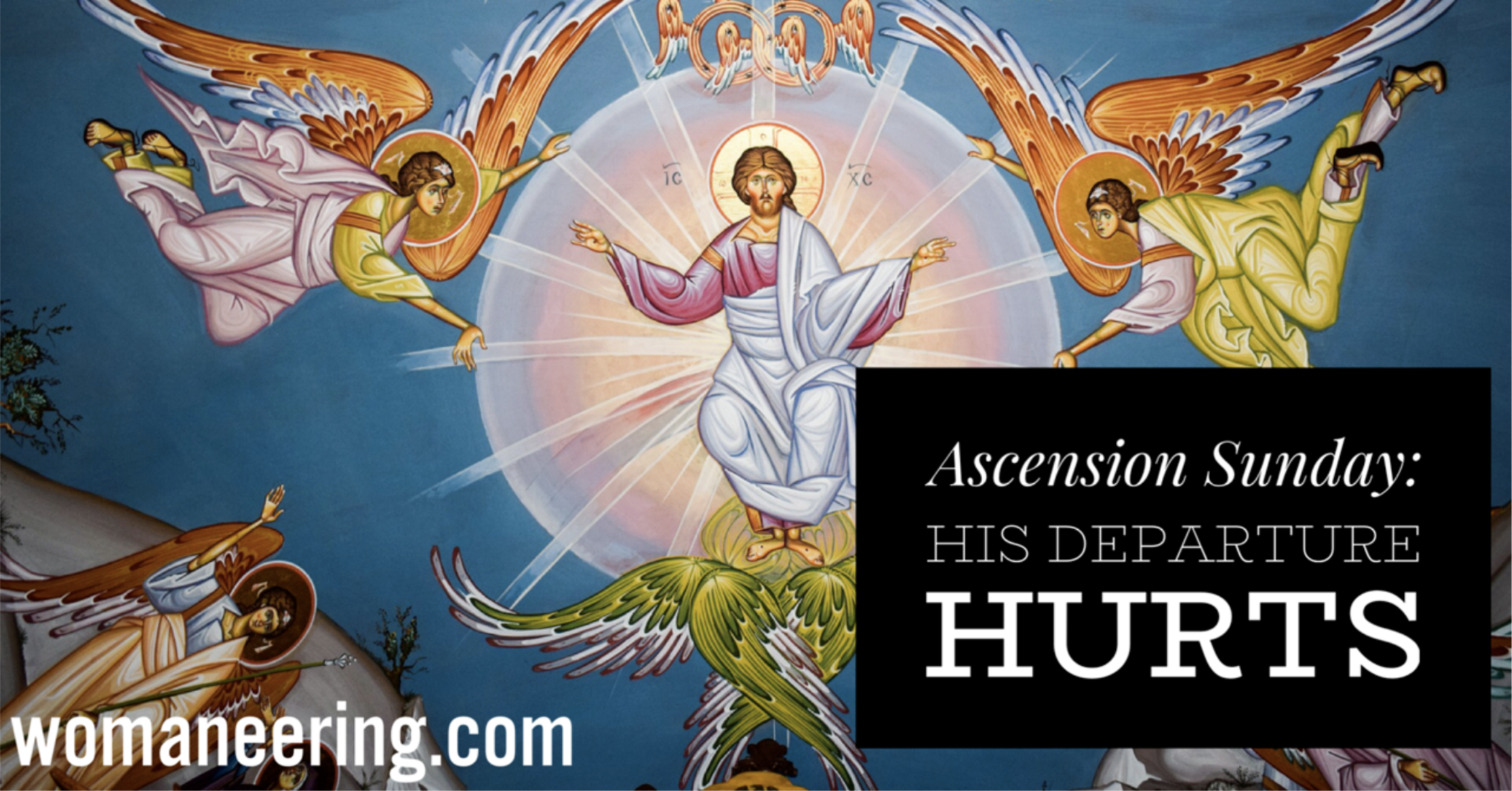
“How many minutes does it take to get to heaven after we die?”
My son Wilder’s question comes quick off the heels of a litany of other questions that I, at the age of 38, still don’t know how to answer. The multitude of sermons and seminary lectures race through my head, “...today you will be with me in paradise”, purgatory and a cleansing period, chosen versus adopted as a child of God. I force myself to focus on his face tucked deep in the back seats of our van. How do we bring his curiosity and innocence to understand an unconditional loving God?
The details are a little murky to navigate with certainty, but my husband (Andrew) and I both prayed the salvation prayer when we were 6 years old and we turned out okay spiritually, I guess. So, now in the van on our way to the ferry we dance through the complexity of this moment. I don’t want death and heaven to sound too exciting and I don’t want it to sound too scary either.
“For something to die, something must live.” (Nikki Giovanni)
I think about it being the end of Eastertide this weekend, the middle ground waiting when we watch our Resurrected Savior ascend into the clouds, leaving us to wait for His return.
Our visiting pastor this morning was brilliant in all of her wisdom and teaching heart, Rachel Clinton described the Ascension of Jesus after His resurrection to be filled with the complexity of hope and longing. The followers of Christ, His disciples who loved and served a Risen King, one who defeated death was now leaving them, and His departure hurt. I imagine all of Christ’s followers looking up at the sky watching their Savior disappear like a balloon making its way into the unseen atmosphere. Twice in three months they endured the trauma of His leaving. The crucifixion and now the Ascension mark twice being left. Being a human that knows the trauma of being left, I feel a lot in these Sunday sermons.
I don’t know there to be more than a minute between death and eternal life or at least this is what I hope for. I want to tell my kids, don’t worry, when Jesus saves you, it is instantaneous that heaven is your reality. Truthfully, that is not my experience in my life; salvation, heaven and eternal wholeness takes a while to get to...not to mention it has to pass through some kind of a death.
“How many minutes does it take to get to heaven after we die?”
How do I explain to my children that death does sting a bit; not eternally, but in the minutes, hours, and years we must endure waiting, away from heaven. How do I teach my kids about being powerful in their powerlessness? How do I teach them not to fear the time lived between life and death and death and eternal life?
Andrew and I muddled through a salvation prayer, we actually get in a little fight as we offer the kids a few phrases to repeat after us; to which none of them did repeat. In the awkward silence that followed our prayer, we asked our kids if they wanted to pray and ask Jesus into their hearts. It was the pause led us to wonder if we had botched the moment in a huge parenting fail, when Wilder spoke up,
“Actually, I want to wait until the last day of school to ask God into my heart.”
I chuckled away the momentary fear and shame I felt when I heard his answer...maybe my kids know more about trusting God with their lives than I do. They don’t seem at all worried about it, they don’t fear something happening or the struggle of living in between the carnal and the eternal. They love God and at the same time are VERY okay waiting in the in between, they are at peace with God’s love for them and full of faith...and you can bet I am taking notes from them.
I am looking forward to the last day of school, I can’t wait to hear the proper way to ask God into my heart.
I plan to repeat the words after my boy as he prays.
God of Comfort, be near.
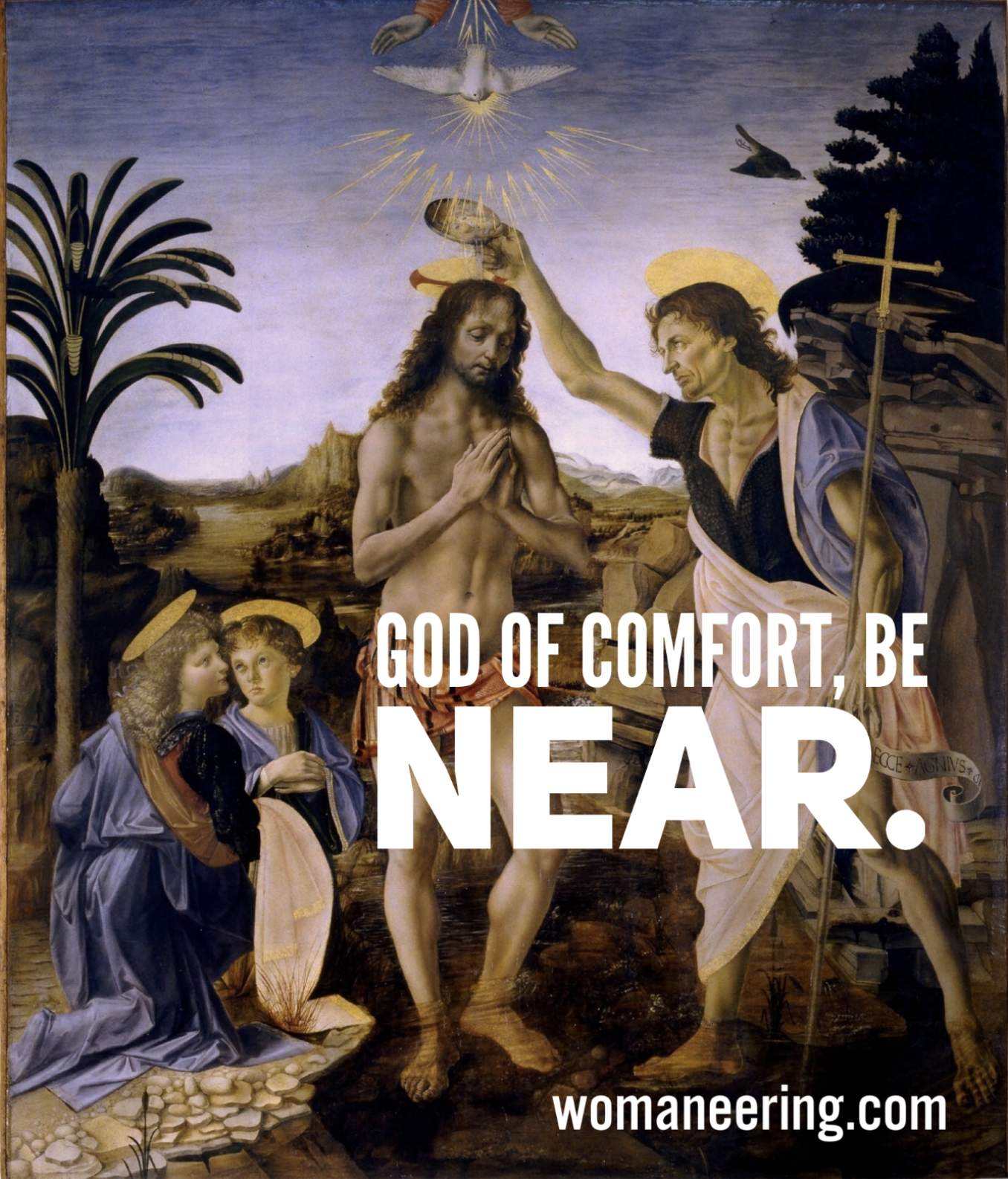
Selah my 4 year old called her brother “dumb” so she is now crying on the kitchen counter as I cook because she can’t watch the rest of the tv show they were watching.
We take words serious in our house. Words mean as much as, if not more than, a shove or a push. So when our kids use a word to tear down someone else’s personhood and spirit, we have consequences. Four-year-olds are no exception.
Her tears are hot and ongoing for the next hour and I keep walking over and holding her, comforting her through the pain of the consequence.
This is what mothers do, they comfort along the lessons of life.
After watching Rachel Held Evans’ funeral today, I feel my own need to be comforted. On this earth, the life, death, life cycle is not foreign to me, but when a mother, your age dies, you feel it. The heavy weight of death is more than my chest can bear after such a life has been stolen from us. I don’t weep for her resurrected body, I weep for her earthly one that doesn’t get to nurse her sweet baby before sleep tonight. I feel heavy for the empty pages she will never fill and I will never read. I grieve because she is a woman, daughter, sister, wife and mother and the idea of dying and leaving my family sounds excruciating.
Her funeral was painstakingly beautiful. The women who facilitated the service were exquisite in their knowledge of how to navigate a congregation around a tomb. Rachel’s essence and memory were so very honored. In the sermon, Mary Magdalene was a beloved archetype illustrated throughout the weeping, she was a Biblical character who knows her way around a tomb. Mary Magdalene hated death but was not going to let it stop her from living. After Jesus’ resurrected body ascends we are all left with the hope while holding the pain of living apart from Him. I feel the pain today of living apart from those who have I loved and I have had to bury. Today, my body aches and I need a Comforter to tell me that “this too will pass” and that we won’t live forever apart from our beloveds.
May my daughter in years to come, long after I am gone remember my arms around her as she wept through different seasons of life and my holding her weeping body and whispering,
“this too shall pass, we were made for glory, my love.
And glory is coming for us.”
Does God Know What It is Like to Be Pregnant?
“Yours is the kind of body I want, when I am pregnant.”
She says this so matter-of-factly to me at a rehearsal dinner last weekend, I forget for a moment that I was still trying to remember her name.
I am flattered by the compliment but not sure why she has revealed this information to me. Her tall slender body promises her hope to come true and so much more.
I feel a little more at ease, that I am not the only woman who has feared what they will look like pregnant. I wonder to myself if I will be able to master the pregnancy glow, those few women of power and assurance, who wear their protruding belly like an icon of glory in it's most compelling moment.
There has been no initiative on my part to engage with this jutting abdomen of mine. My husband's accolades have fallen short of my insecure glances into the mirror.
“Lord, what did you want me to feel about my body in these 36 weeks?”
“In these 252 days of wrestling my belly against gravity, did You hope that awe might be my only thought?”
I would not change this baby growing within me, I want him there, bumping up against my internal organs, pushing them into my chest cavity to make room for his precious little body to form. And should my tegument mimic his stretching limbs across abdomen, I will mourn the unchosen tattoos against my toasted skin and hope to one day wear them proudly without thoughts of erasing them with modern aesthetic lasers.
My husband often banters with me by offering to “hold” the baby, as he puts his hands under my stomach. I am both envious and relived he does not carry this baby within his body as there would be both comfort and disdain to his experiencing this without me.
I would not choose not to feel this little one's restless growth reminding me of a Creator who is secretly crafting a little human that looks something like where Andrew and I come from, a surprise structure from our family lineage and perhaps a personality that might lead us to laugh with him long into the night.
And I know if I go where He invites me, I will learn much of the ways of a Master as He creates masterpieces...this is my exclusive invitation to be a part of who God is as the Creator.
Yet.
I am human, and even more specifically, woman.
Cursed with the desire to offer beauty in its purest form.
To which I wonder out loud again to the Father, “Really. Is pregnancy what You call beauty or curse?”
I fear His answer, I already knew.
“Both.”
“Welcome my daughter.”


